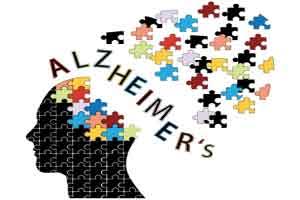- Home
- Editorial
- News
- Practice Guidelines
- Anesthesiology Guidelines
- Cancer Guidelines
- Cardiac Sciences Guidelines
- Critical Care Guidelines
- Dentistry Guidelines
- Dermatology Guidelines
- Diabetes and Endo Guidelines
- Diagnostics Guidelines
- ENT Guidelines
- Featured Practice Guidelines
- Gastroenterology Guidelines
- Geriatrics Guidelines
- Medicine Guidelines
- Nephrology Guidelines
- Neurosciences Guidelines
- Obs and Gynae Guidelines
- Ophthalmology Guidelines
- Orthopaedics Guidelines
- Paediatrics Guidelines
- Psychiatry Guidelines
- Pulmonology Guidelines
- Radiology Guidelines
- Surgery Guidelines
- Urology Guidelines
Exercise protects against Alzheimer's by producing hormone Irisin

According to researcher at Columbia University's Vagelos College of Physicians and Surgeons and Taub Institute for Research exercise produces a hormone irisin that may improve memory and protect against Alzheimer's disease .Ottavio and his colleagues at the Federal University of Rio de Janeiro in Brazil and Queens University in Canada have found that irisin is present in the human hippocampus and that hippocampal levels of the hormone are reduced in individuals with Alzheimer's.The study was published in Nature Medicine.
Physical activity is known to improve memory, and studies suggest it may also reduce the risk of Alzheimer's disease. But researchers don't understand why.
A few years ago, exercise researchers discovered a hormone called irisin that is released into the circulation during physical activity. Initial studies suggested that irisin mainly played a role in energy metabolism. But newer research found that the hormone may also promote neuronal growth in the brain's hippocampus, a region critical for learning and memory.
In the new study, Arancio and his colleagues at the Federal University of Rio de Janeiro in Brazil and Queens University in Canada first looked for a link between irisin and Alzheimer's in people. Using tissue samples from brain banks, they found that irisin is present in the human hippocampus and that hippocampal levels of the hormone are reduced in individuals with Alzheimer's.
To explore what irisin does in the brain, the team turned to mice. These experiments show that irisin, in mice, protects the brain's synapses and the animals' memory: When irisin was disabled in the hippocampus of healthy mice, synapses and memory weakened. Similarly, boosting brain levels of irisin improved both measures of brain health.
Swimming boosts irisin, protects memory in mice
The researchers then looked at the effect of exercise on irisin and the brain. In the study's most compelling experiments, the researchers found that mice who swam nearly every day for five weeks did not develop memory impairment despite getting infusions of beta amyloid -- the neuron-clogging, memory-robbing protein implicated in Alzheimer's.
Blocking irisin with a drug completely eliminated the benefits of swimming, the researchers also found. Mice who swam and were treated with irisin-blocking substances performed no better on memory tests than sedentary animals after infusions with beta amyloid.
Together the findings suggest that irisin could be exploited to find a novel therapy for preventing or treating dementia in humans, Arancio says. His team is now searching for pharmaceutical compounds that can increase brain levels of the hormone or can mimic its action.
"In the meantime, I would certainly encourage everyone to exercise, to promote brain function and overall health," he said. "But that's not possible for many people, especially those with age-related conditions like heart disease, arthritis, or dementia. For those individuals, there's a particular need for drugs that can mimic the effects of irisin and protect synapses and prevent cognitive decline."

Disclaimer: This site is primarily intended for healthcare professionals. Any content/information on this website does not replace the advice of medical and/or health professionals and should not be construed as medical/diagnostic advice/endorsement or prescription. Use of this site is subject to our terms of use, privacy policy, advertisement policy. © 2020 Minerva Medical Treatment Pvt Ltd